 Managing Communal Area Maintenance And Cleaning Schedules In Shared Houses
Managing Communal Area Maintenance And Cleaning Schedules In Shared Houses
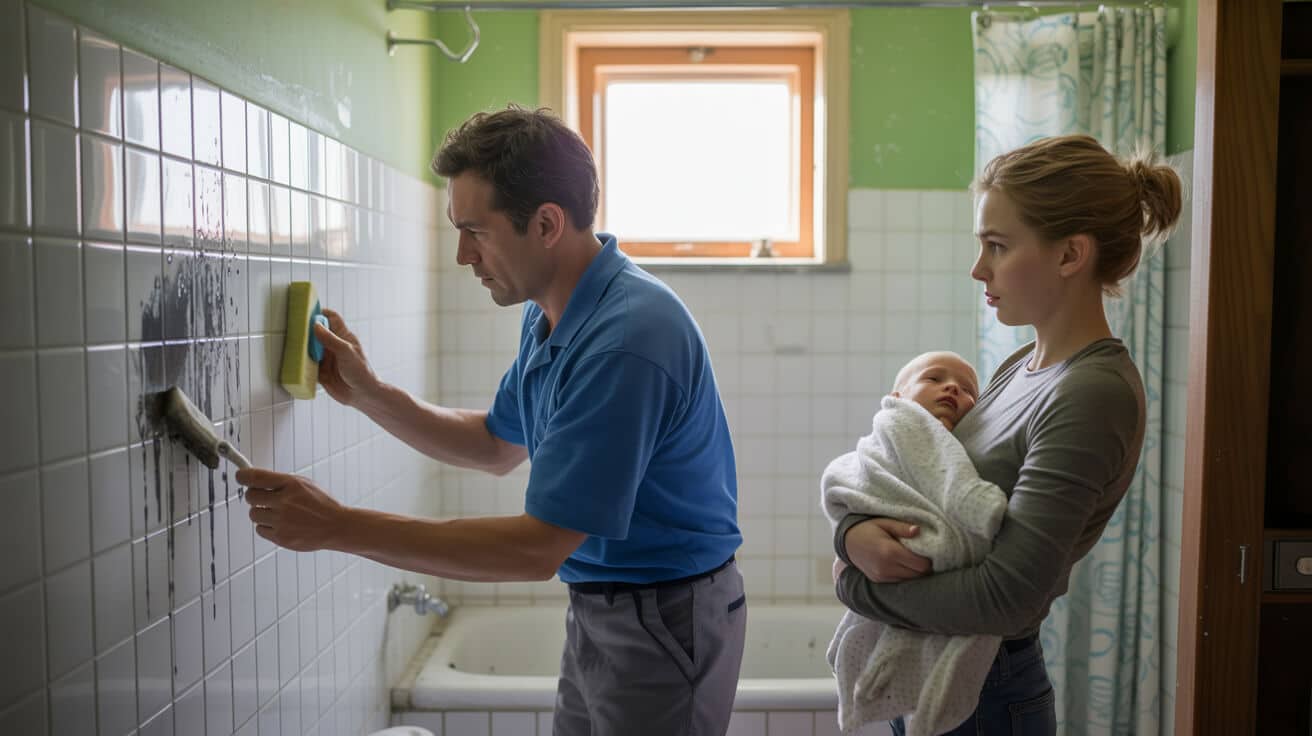
Why Do Most Landlords Underestimate Their Legal Duties for Communal Areas—And What’s at Stake?
Let’s get this settled: if you let, manage, or own a house with shared spaces in the UK, the law draws a hard line—communal area standards are your legal responsibility, no matter what your tenancies or cleaning rotas say. That means HMO landlords, accidental house‑sharers, and large portfolio pros alike sit in the regulator’s crosshairs if bins overflow, corridors get grimy, or a tenant slips because someone “forgot” to mop.
Someone will be held responsible in court or council—not the tenants, but you, the landlord.
The stakes aren’t theoretical. Local authorities wield real teeth—£5,000 to £30,000 fines per breach (not per building), instant disruption, and further sanctions if things get missed or left to “whoever’s around next.” You could face a revoked HMO licence, rent repayment orders, or even criminal prosecution. Reputation gets torched—one poor complaint, and future lets or agent partnerships dry up before you can blink.
Every year, smart landlords still trip up the same way:
- trusting informal cleaning rotas or “agreements between housemates.”
- Forgetting external communal areas—think alleyways, bike storage, bin collection points.
- Failing to keep *proof* (dates, logs, photos) that the property stays clean and safe week after week.
Most property owners start out with clean intentions and a “common sense” system—until reality kicks in. Councils don’t care about good intentions; they want timely compliance and proof you’re on it. In 2023, hundreds of UK landlords were cited for communal failings, not because they were negligent, but because they couldn’t produce solid, traceable evidence standards were met (gov.uk).
Here’s the reality pace-setters accept: if it’s communal and under your control, you own the outcome.
What Counts as a Communal Area—And Why Do the “Missed Spots” Cause Issues?
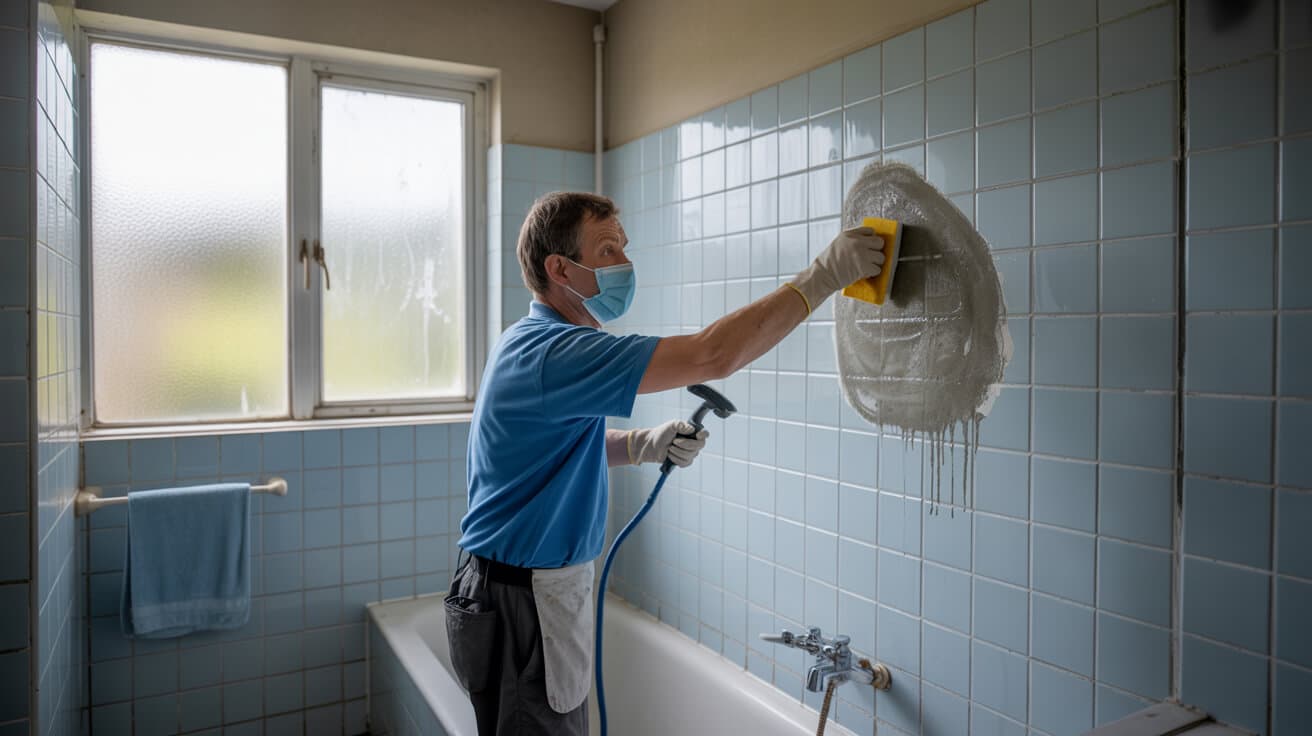
Ask three landlords to define “communal area,” and you’ll get three different answers—usually missing critical zones. Legally, anything used by more than one tenant (or guest), that’s not inside a single locked bedroom, counts: if in doubt, treat it as communal.
Hidden Compliance Traps Most Miss
- Bin stores and outdoor spaces—left full or grime-stained, these trigger instant council penalties.
- Side paths, back steps, or shared driveways—if a tenant or visitor could slip, the risk is on you.
- secondary WCs, utility rooms, or laundry corners—got a blocked trap or neglected appliance? Still counts.
- Communal fire routes or external escapes—blocked by boxes or detritus, or neglected paint and lighting.
The most expensive fines target the landlord’s blind spots, not the obvious ones.
Even if your tenancy says, “The tenants must keep shared areas tidy,” courts and councils still hold you to account. When housing officers review HMOs, they’ll often focus first on these “edge” zones, knowing most DIY-managed places slip on documentation or proactive upkeep.
Pro tip: Build a maintenance log and visual record for every area tenants share—bin posts, fire doors, garden paths—so you’re audit-ready if anyone complains or an inspection drops by unannounced.
Why Cleaning Rotas Alone Don’t Shield You—And How Pro Services Change the Game
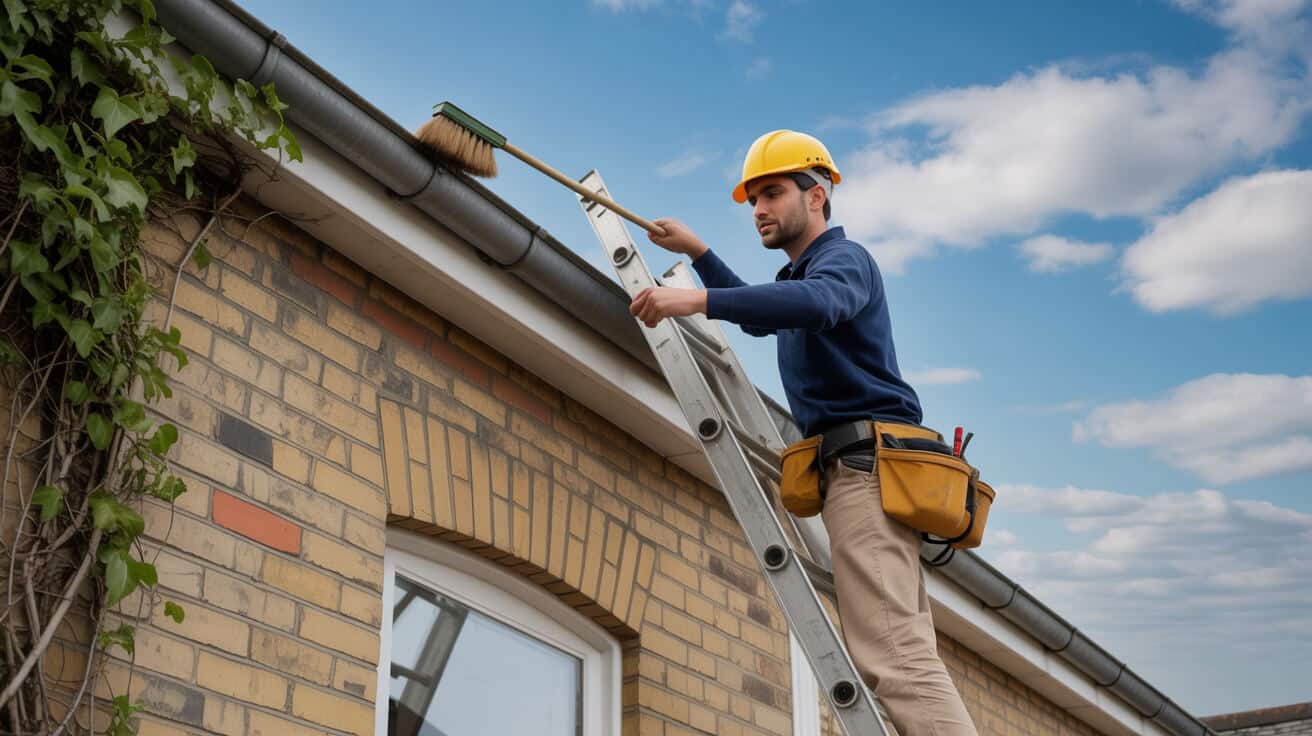
Plenty of landlords trust tenant-led cleaning rotas. It works—right up until a single week gets skipped, someone moves out early, or tempers flare about “who missed the bins.” Councils aren’t interested in arguments or promises. They’re auditing for results and reliability, not the rota itself.
Why serious landlords make the jump to professional cleaning, especially for HMOs:
- Paid cleaners don’t go on holiday or ghost you mid-let. You get consistent, time-stamped cleaning, every week.
- Professional services (like All Services 4U) provide checklists, digital logs, and photo records, which—crucially—stand up to scrutiny in court or at licencing review.
- Third-party logs are a deal‑maker during letting renewals, rent reviews, and deposit disputes: letting agents, housing officers, and even insurance underwriters take them as gold standard.
- Landlord insurance policies increasingly ask for evidence of regular professional cleaning—especially post-pandemic.
Landlords running clean, dispute-free portfolios don’t risk it—they invest in credible, third-party cleaning and keep records on autopilot ([ladybirdliving.co.uk](https://ladybirdliving.co.uk/2023/05/25/are-property-owners-responsible-for-cleaning-the-communal-areas-in-a-hmo/?utm_source=openai)).
If you own more than one shared property or have a high tenant turnover, a cleaning rota is table stakes—professional services are the survival play.
How Does a Cleaning & Maintenance Schedule Pass Inspection—And Where Do DIY Systems Collapse?
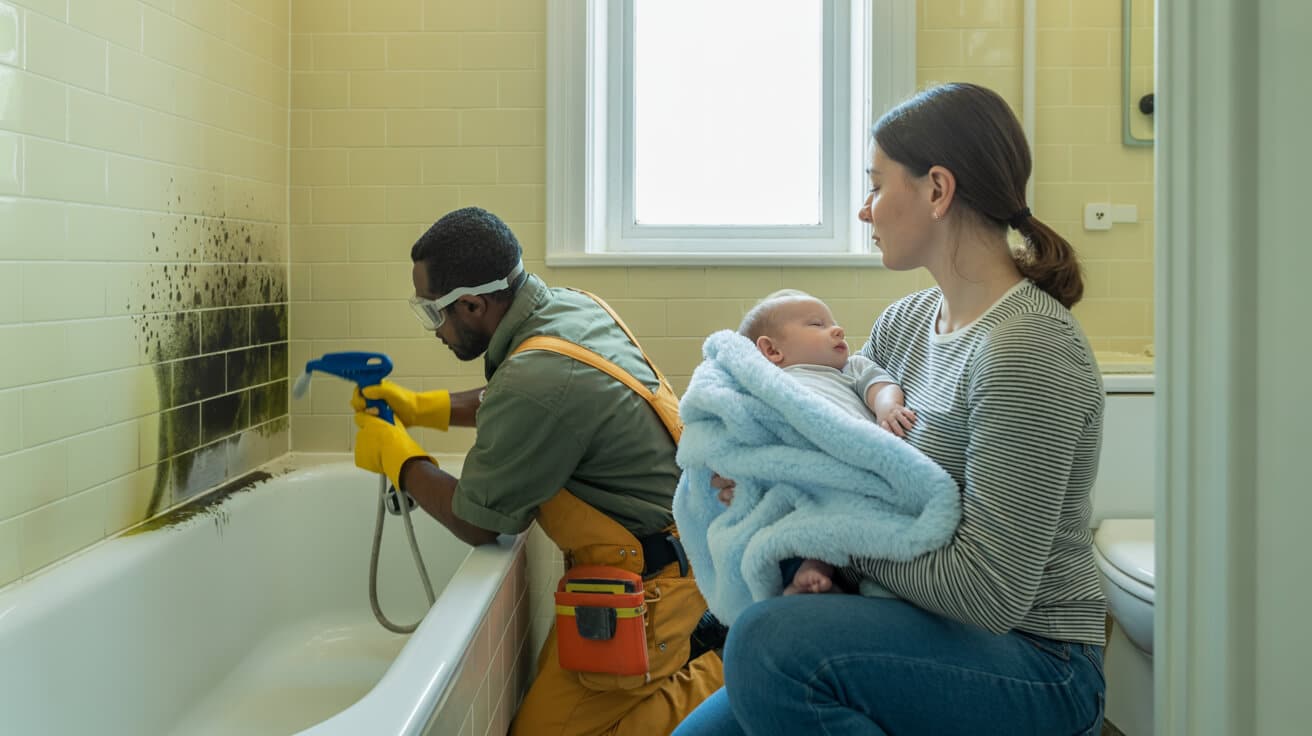
A cleaning schedule only delivers legal protection if it’s complete, current, and provably maintained—just having a rota pinned to the fridge counts for little in disputes. Housing officers routinely ask for:
- A full list of every shared and ancillary space.
- Frequency and granularity: “Weekly” for bins isn’t enough; list all outdoor, bathroom, and corridor tasks, and spell out “when, where, by whom.”
- Proof of completion: Paper logs, digital records, and photos. “It was done” doesn’t cut it—*evidence* does.
| Shared Area | Task Example | Frequency | Who Does It | Proof (Log/Photo) |
|---|---|---|---|---|
| Kitchen | Worktops, appliances | Weekly | Cleaner | Digital log, photo |
| Hallways/Stairs | Debris sweep, mop | Weekly | Cleaner | Photo, checklist |
| Bins/Bin Store | Clear, wipe bins | Bi-weekly | Cleaner/Tenant | Dated photo, log |
| Exterior Paths | De-leaf, safe steps | Monthly | Cleaner | Digital log, photo |
| Fire Exits | Blockage check | Weekly | Cleaner/Agent | Log/photo (cloud) |
You can’t buy time in a dispute—evidence is the only shortcut to safety.
Winning systems use cloud-synced logs (or good old files), with every clean, issue, or “nothing to fix” note dated and stored for at least six months. Pin the rota, email updates, and ensure tenants and cleaners both see schedules and know how to confirm jobs.
Weak schedules look like this: “Housemates must keep communal areas clean.” That’s a guarantee for stress the moment anyone fails to do their bit—or when standards slip without you knowing.
How Can Landlords Get Tenants and Staff to Buy Into Cleaning Plans—And Prevent Small Failures From Becoming Big Problems?
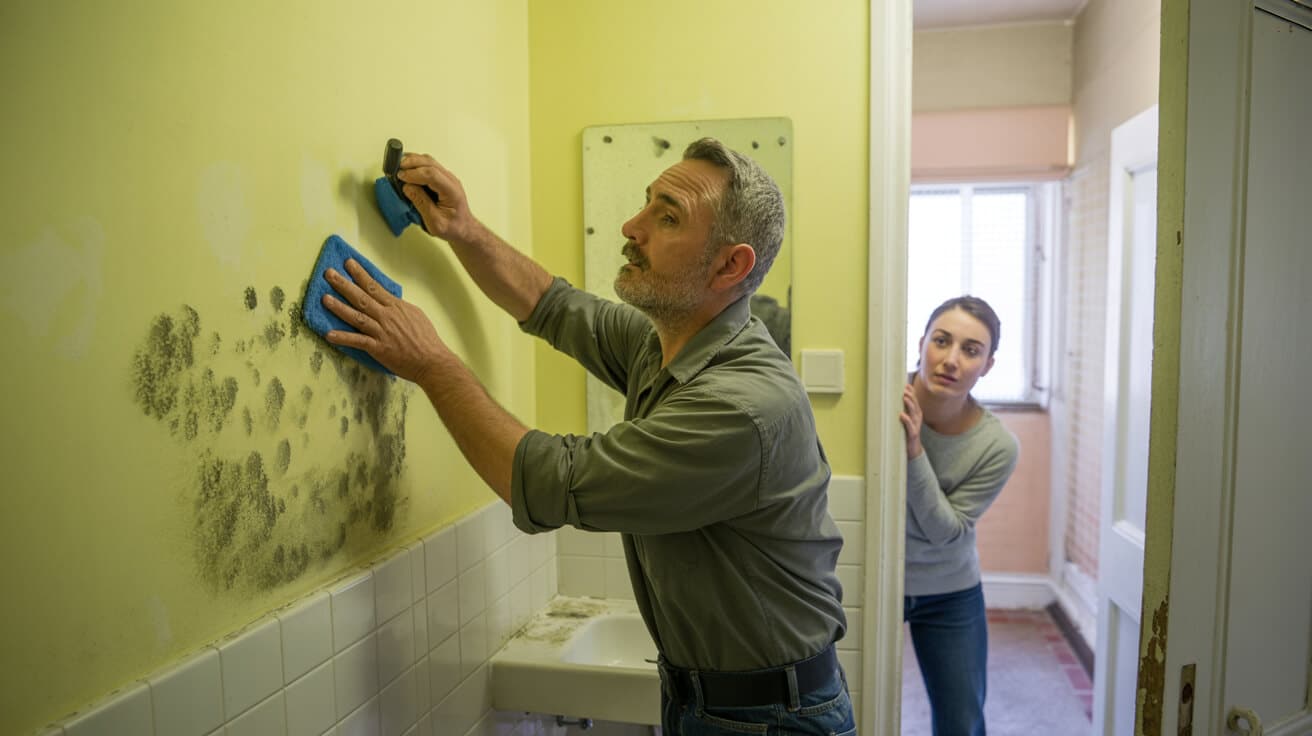
The plan only works if everyone knows how and when to execute it. Vague instructions (“keep tidy”) don’t cut it—neither does hiding the rota in a drawer.
Make Standards Visible and Actionable
- Use plain English, list every space and job—leave zero ambiguity (“Kitchen floors every Wednesday,” not “as needed”).
- Show tenants *how* to prove jobs are done: eg, WhatsApp photos, ticklists, digital check-ins.
- Assign one reporting channel for problems—don’t split among half a dozen email threads or texts.
- During tenant onboarding, run through the process—what gets checked, where they report issues or missed cleans, and which standards matter most.
- Remind regularly: —calendar reminders, WhatsApp group prompts, and posted rotas make it impossible to miss a step or forget a job.
Clean, visible, and consistent checks stop 80% of rows before they begin.
Services like All Services 4U automate this layer: cleaners log jobs with pictures, tenants confirm with a tap, and live dashboards surface missed cleans instantly. The cost? Far less than fighting a disputed deposit or losing a good tenant.
Routine makes compliance easy—make check-ins, evidence, and scheduling as obvious as possible.
How Do You Prove Cleaning Was Done—And Survive Audits, Disputes, or Surprise Inspections?
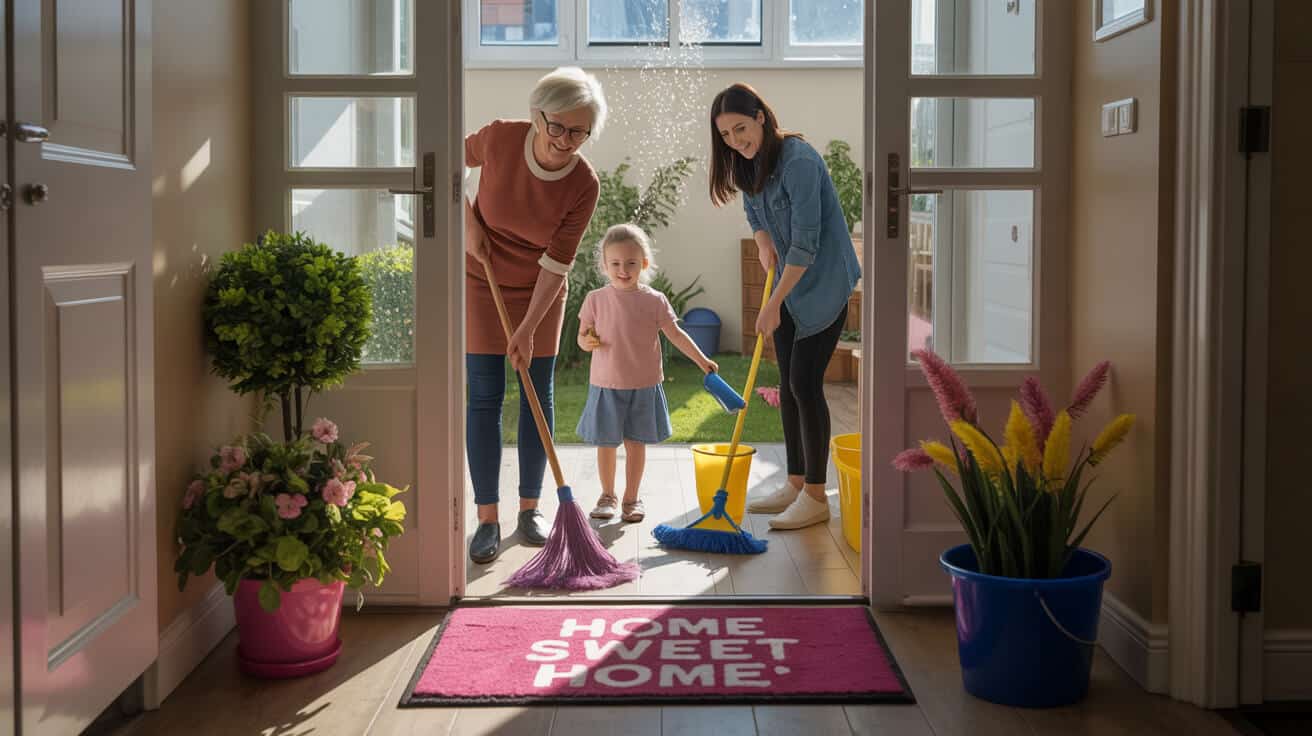
No matter how good your intentions, what matters is evidence you acted—now, not hours after a complaint or inspection notice. The gap between “I trusted the rota” and “Here’s every photo and log—they’re time-stamped” is the difference between fines and a clean sheet.
Audit-Proofing Your Shared House
- Schedule regular physical inspections—monthly is the legal minimum, fortnightly for busy or high-risk HMOs.
- Store photo evidence of every check and clean—tagged by area, date, and responsible party.
- Keep all records—logs, rotas, reports, WhatsApp chats—in one place (cloud or paper, but easily retrievable if needed fast).
- Make it routine: any repair, safety fault, or disputed area gets documented and final fixes synced to your log.
- If you use agents, mandate in your contract that cleaning and maintenance records are always accessible to you on demand.
Landlords who win disputes do so with records—don’t wait for the council to teach you the hard way.
All Services 4U bakes in this approach: every visit, every clean, and every issue is logged and evidenced (photo, time, task, resolution path), keeping a six-month rolling archive. The second a tenant or inspector raises a concern, you’re ready to prove standards—not hunt for paperwork.
What Are the Financial and Legal Risks of Letting Communal Area Care Slide?

There are very few “cheap” mistakes in HMO management. Non-compliance lands as compounded financial loss, operational headaches, and even criminal liability.
Cost of Failure—Where the Money Really Leaks
- Fines: Councils now issue up to £30,000 per breach—and HMOs commonly have more than one “communal area” in scope.
- Licence risk: Failures escalate to licence suspension or refusal to renew if patterns persist.
- Rent repayment orders: Tenants and councils can recover rent for periods where standards drop below the legal bar.
- Reputational penalty: Negative reviews on Google or portals (SpareRoom, OpenRent) linger, killing future bookings and commanding lower rents—sometimes for years.
Prospective tenants type cleaning into reviews before booking a room; landlords with failings lose rent they never see.
A single inspector’s report can trigger six figures in fines across a medium portfolio—or see you disqualified from managing property for years under fit and proper person rules.
Don’t wait for a problem; pre-empt risk with routine, documented standards.
What Transforms Routine Cleaning into a Competitive Advantage for Landlords—And How Does All Services 4U Lead?
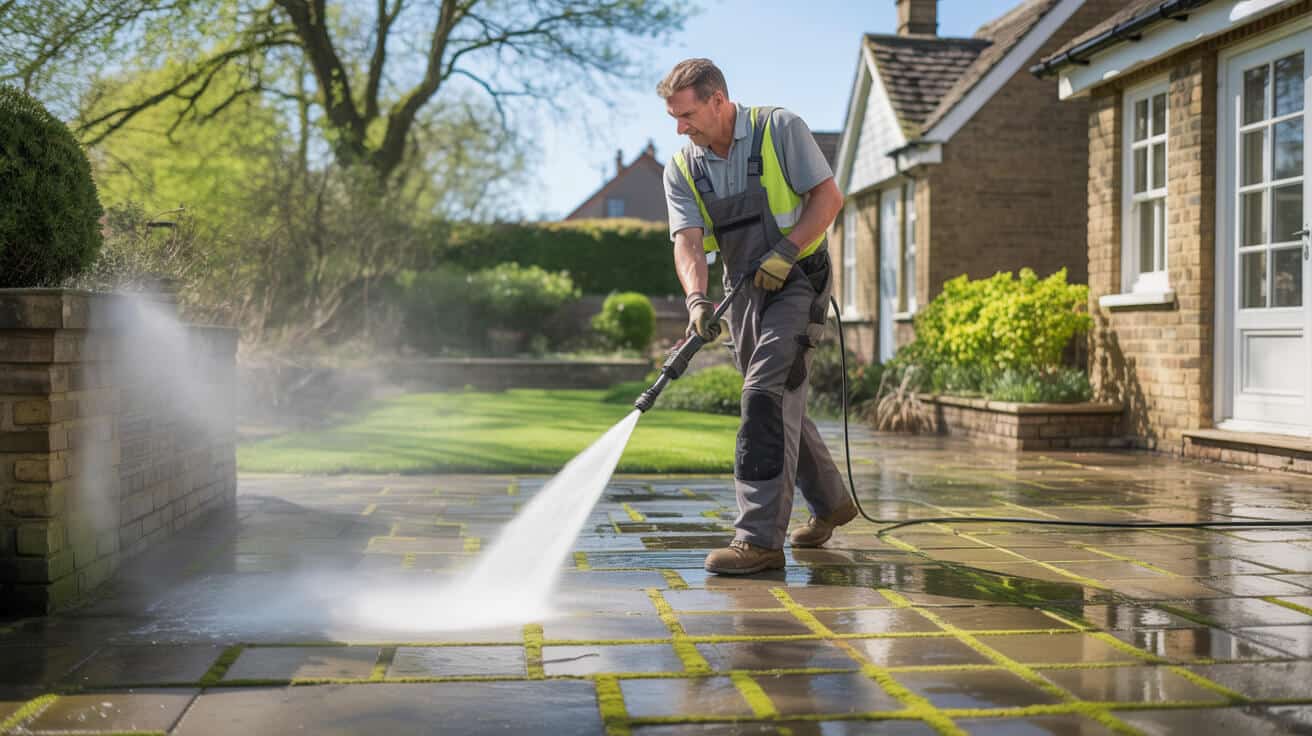
It’s a new era: compliance isn’t just a box to tick, it’s a frontline asset. The landlords who thrive treat cleaning, upkeep, and living standards as levers for value, not just chores.
All Services 4U—How We Build a Portfolio-Ready Standard for You
- Tailored plans for every building and HMO: No templates—individual assessments, scheduled to the unique quirks, foot traffic, and compliance pressure of each property.
- Evidence-first commitment: Every clean and fix is logged digitally, with photos, time stamps, and rolling backup—so you’re audit-proof and dispute-proof at the same time.
- Fast, reliable escalation: Issues (from jammed doors to garden paths) are reported in real-time, with automatic notifications—no more nasty surprises at council inspection.
- Proactive compliance tracking: Our systems auto-track changes to code and HMO standards, so your risk is managed before it ever gets flagged.
The only aftercare you want is a thank-you from your tenants or council inspector—not a legal summons for missed cleaning.
Landlords using All Services 4U consistently report fewer disputes, longer tenancies, and higher rents—plus peace of mind that no regulator will catch them off guard. The difference? We make compliance simple and standards visible for everyone, every week.
Ready to Take Ownership of Compliance—And Free Up Your Time?
Every hour spent firefighting lost evidence, tenant disputes, or last-minute cleans erodes your margins, trust, and portfolio growth. The landlords who move forward fastest hand off the routine, record-keeping, and risk to a partner built for the job.
All Services 4U plugs these risks for you:
- Custom compliance plans: One schedule per property, tuned to your area’s demands and footfall.
- Proof built in: Instant records and photo documentation available for any surprise audit or dispute.
- Time and risk returned to you: Focused on asset growth while we safeguard your base.
The best landlords let systems—not luck—close their compliance gap.
Contact All Services 4U today and bring communal standards from a back-office liability to your frontline advantage.
Frequently Asked Questions
Who carries ultimate legal responsibility for communal area cleanliness and safety in UK HMOs and shared housing?
Landlords and managing agents are legally required to keep all communal areas in HMOs and shared housing safe, clean, and well-maintained, and this duty cannot be shifted to tenants under UK law. The Management of Houses in Multiple Occupation (England) Regulations 2006 fix responsibility on the owner or their appointed agent to consistently uphold standards in kitchens, bathrooms, entranceways, stairwells, and shared outdoors. Council and safety inspectors disregard rota systems or tenancy clauses if hygiene lapses, accidents, or complaints arise—only the property controller is held accountable.
Delegation eases the load, but the legal line never moves—local authorities look to the owner first, no matter the rota.
If a landlord neglects this, or pretends internal agreements transfer the burden, enforcement can escalate rapidly: penalties of up to £30,000 per count, licencing removal, and regular compliance checks become the new normal. Bringing in a professional service like All Services 4U, which aligns every routine and record with compliance law, is the most reliable way to insulate yourself from legal risk. Always cross-check the latest council policies and keep the HMO guidance handy at gov.uk/renting-out-a-property/houses-in-multiple-occupation-hmo.
What makes landlord cleaning liability non-transferable?
- Regulatory law classifies communal cleaning and maintenance as an obligation that cannot be contractually handed off, even by mutual consent.
- Council or court action always targets the property owner or managing agent if issues or complaints arise.
- Professional property teams like All Services 4U embed every maintenance visit, log, or emergency callout directly within audit-ready compliance frameworks.
How do you create a robust cleaning schedule for shared housing that stands up to compliance inspection?
A schedule only works if it’s visible, understood, and demonstrably followed. Start by listing every communal space—kitchen, bathrooms, corridors, exterior bins, gardens—and detail which areas need daily, weekly, or monthly attention. In smaller properties, a printed rota or shared digital checklist (using Google Sheets or simple apps) can clarify roles, but in licenced HMOs, only supplier-logged cleaning with digital or photographic evidence meets council expectations in a dispute.
- Clarify “clean” with specifics: Attach labelled checklists or brief photo guides to every task zone—ambiguity is the enemy of consistency.
- Prioritise proof over process: Create digital or paper logs capturing all cleaning activity, with signatures or photo uploads where possible.
- Supply tracking: Set up an escalation point for when consumables (bags, sprays, cloths) run low—timely restock is part of compliance.
- Back-up for rota gaps: If a tenant misses a slot or abandons the rota, have an automatic fallback: a standby cleaner or agency support on call.
- Accessible records: Keep all evidence—logs, photos, communications—stored in an easily retrievable format, ready for on-the-spot council or tenant checks.
When tasks, proof, and resolution are all visible, drama fizzles out. Compliance becomes part of the daily rhythm.
Regulatory-grade templates and role models are available via trusted sector portals, such as PA Housing’s cleaning specification.
Are professional cleaning services a practical investment for shared accommodation?
- Providers like All Services 4U guarantee schedule, thoroughness, and documentation—exceeding the DIY rota both in reliability and risk management.
- Neutral, third-party services cut through disputes, levelling the field for all tenants.
- Outsourcing liberates time and mental space for landlords and property managers to focus on higher-level needs, not just the cleaning cycle.
How often do communal areas in HMOs and shared housing need cleaning and inspection to meet compliance?
Weekly cleaning is the gold standard across most UK HMOs, backed up by licencing authorities and routine enforcement advice. Heavy-traffic zones such as kitchenettes in busy properties may require more frequent attention—especially during high occupancy or following maintenance or incident reports. Alongside cleaning, regular inspections are vital: monthly for full compliance, and immediately after a notable event or turnover. Crucially, any cleaning or check that isn’t logged is effectively invisible in an audit.
- Baseline frequency: Kitchens and bathrooms—minimum weekly, ideally more with high use. Shared halls, landings, and communal bins—weekly. Deep cleans (appliances, carpets, windows)—monthly, or per change in occupancy.
- Inspection protocol: Each visit should combine cleanliness checks with safety (tripping hazards, leaks, fire exit access, lighting functionality).
- Full documentation: Maintain signed or timestamped logs and supporting photos—council spot-checks or challenges are based on proof, not just policy.
A forgotten logbook instantly erases months of diligent cleaning if you’re audited—document every visit, every time.
All Services 4U uses digital logbooks and photograph-based reporting to ensure you’re never left undefended during compliance scrutiny or tenant complaints.
Is a tenant-agreed rota enough to satisfy the law?
- The accountability for legal cleanliness remains with the landlord or agent, even if tenants handle most cleaning work.
- Internal rotas require continuous monitoring, record-keeping, and a readiness plan if standards drop.
- Professional cleaning and reporting add a rhythm of predictability, reducing stress and elevating peace of mind for everyone involved.
What is the most effective response when communal cleaning lapses or conflicts arise between tenants and landlords?
Lapses or disputes demand a calm, evidence-led response. When cleaning or minor maintenance breaks down, prompt and well-documented action prevents small problems spiralling into formal complaints or enforcement. Tenants should always log the issue in writing, attaching photos, dates, and any message trail. Landlords or managing agents must move decisively: acknowledge, record, schedule, and confirm resolution. Fast escalation—using trusted emergency services if necessary—demonstrates responsibility and commitment to both tenants and authorities.
- Tenant action: Report issues in writing (with supporting evidence); preserve all communications for your own protection.
- Landlord/agent protocol: Respond immediately, log each fix, document what was remedied, and close the loop with a formal update.
- Persistent or escalating cases: Initiate official channels (local council’s HMO or Environmental Health teams). External property services can step in, offering deep cleans or rapid resets that restore compliance without delay.
Neglected issues never stay small—left unaddressed, they risk spirals of complaint, fines, or reputational loss.
Top-tier property maintenance providers, like All Services 4U, deliver rapid-response reset services, bridging compliance backlogs and helping everyone move forward.
What’s the fastest route to resolve shared cleaning or maintenance disputes?
- Document each incident clearly with photos, logs, and timestamps.
- Activate a schedule for remedy—define who, when, and how.
- Archive all evidence, fixes, and communication to keep ahead of regulatory review.
Which specific cleaning tasks and communal zones are essential for full compliance in shared housing or HMOs?
Full compliance means making sure every zone and surface is scheduled, checked, and documented. Kitchens, bathrooms, stairwells, hallways, lounges, bins, gardens, and fire exits all need a unique cleaning script—each specifying the what, when, and by whom. Instead of vague notes (“clean kitchen”), define each step: worktop wiping, hob degreasing, bin emptying and scrubbing, appliance interior cleaning, floor mopping, and deep appliance cleans. Remember that high-touch points—door handles, light switches, bannisters—attract attention from both tenants and inspectors.
A missed fridge shelf or sticky staircase rail can become a compliance trigger—attention to detail is what sets leading landlords apart.
Breakdown of core cleaning actions and areas:
- Kitchen: Clear and wipe surfaces, sink scrub, bin emptying/clean, appliance surface and interior, floor mopping.
- Bathroom: Disinfect all sanitaryware, clean mirrors and chrome, empty bins, mop floors.
- Stairwells/halls: Vacuum, mop, dust rails, check lighting, verify fire exits are clear.
- Lounges/common rooms: Dust, disinfect high-contact points, clean all seating and floors.
- Exterior/bin stores: Disinfect and tidy bins, sweep and de-litter grounds, ensure storage is orderly.
- Fire safety: Ensure exit routes are never blocked, test smoke/CO detectors.
Deep cleans—ovens, fridges, carpets, or external windows—should run monthly or quarterly. Flag every frequency and assign visible responsibility; display schedules and keep logs up to date. Sector-best templates are openly available via (https://www.pahousing.co.uk/residents/your-communal-services/communal-cleaning-specification/).
Why do regular deep cleans matter beyond simple compliance?
- They eliminate built-up residues, odours, and health risks not reached in routine cleans.
- Fulfilling insurance/landlord policy requirements and council/lettings documentation expectations.
- Regular deep cleans reduce lifecycle repair costs by catching small issues before they become expensive.
How can landlords and agents guarantee audit-proof evidence for communal cleaning and maintenance compliance?
Satisfying inspection comes down to hard evidence—every week and for every task. The foundation is a living log: every scheduled cleaning, safety check, and trade visit listed with date, name, location, and supplementary photos. Archive chains of communication—emails, texts, service messages—close any gaps landlords or letting agents could be questioned over. For each hazardous incident or complaint, maintain a remediation record, attaching proof and tracking follow up to sign-off.
The difference between ‘compliance stress’ and operational calm lies in having every document at your fingertips—even under audit.
All Services 4U delivers built-in digital archiving, photologs, and incident workflows for every client. Quick retrieval of any record—be it for a council letter, licencing check, or tenant challenge—puts property owners and agents on the front foot.
What’s the basic package of documentation for audit-proofing your property?
- Weekly cleaning and inspection logs (signed or digital), linked to rooms and responsible parties.
- Dated, area-stamped photographic proof of all high-impact or high-risk zones.
- Archive of messages or emails mapping every concern to a concrete fix.
- Continuous digital backup, downloading or sending as needed for council or legal queries.
Transform compliance into your competitive advantage: with All Services 4U, you move beyond basic box-ticking to proven, auditable excellence—all while protecting your properties, your tenants, and your peace of mind week after week.



